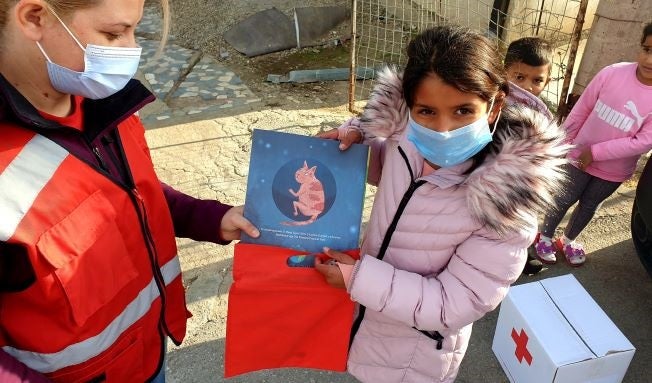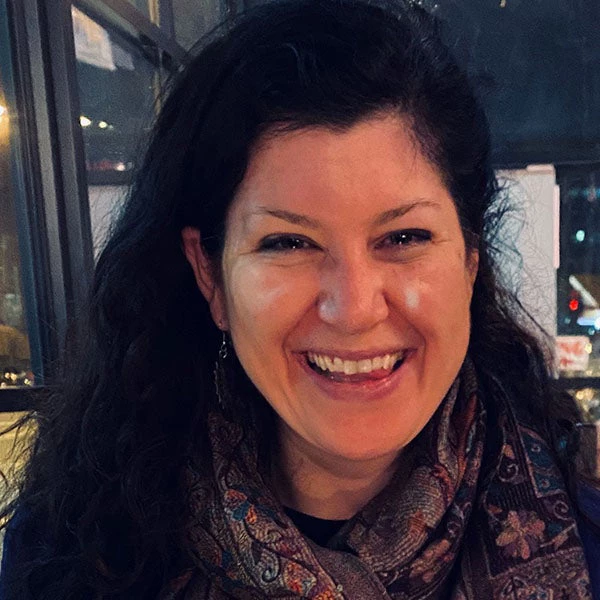 Елвира, 7 и нејзините браќа и сестри добија книги на албански јазик. Таа рече: „Само што почнав да читам на училиште и едвај чекам да се усовршам за да можам да им читам на моите помали брат и сестра и да ги забавувам со приказните од книгите.“
Елвира, 7 и нејзините браќа и сестри добија книги на албански јазик. Таа рече: „Само што почнав да читам на училиште и едвај чекам да се усовршам за да можам да им читам на моите помали брат и сестра и да ги забавувам со приказните од книгите.“
Reading can transport children to new worlds and strong reading skills are essential to succeed in school. When families regularly talk, interact and read with young children, they are more likely to have stronger language and cognitive skills, be ready for school and show reading achievement in Grade 3. When children learn to read in their mother tongue, or the language that they speak at home, they build literacy skills more quickly, which forms the foundation for reading in other languages.
But too many children do not have books at home. A recent study covering 35 countries of varying income levels found that only half of all children had at least one book at home. Some parents may not understand the role they can play in boosting kids’ learning by reading with them. Globally, just half of all parents report regularly engaging in games, songs and reading activities with young children.
Read@Home is a new effort to get reading, learning and play materials into homes, targeting families who are unlikely to be reached with many of the remote learning approaches being rolled out by ministries of education in the context of the COVID-19 pandemic. Read@Home is not just a crisis response; rather, it is a key component of system-building that will help countries address learning poverty and be resilient in the face of future shocks. Over the past 6 months, the World Bank has been working with governments in 10 countries, including North Macedonia, to identify existing partners, books and tools to help parents and family members support their children’s learning.
The Government of North Macedonia, with support from the World Bank, has launched Read@Home in the country, with a major push to distribute books to all children from low-income families in their mother tongue. By getting books into the hands of children and engaging parents to read with them in the language that they speak at home, Read@Home could boost children’s reading comprehension assessment scores in the early grades, which are on average 20 percent lower for students whose first language is not Macedonian.
In its first roll out, Read@Home in North Macedonia is targeting 40,000 children ages 3-12 years living in families with a monthly income of less than 260 EUR. These families are the recipients of the Guaranteed Minimum Income (GMI) or national social safety net program.
In October, 15,000 young children from all over North Macedonia received a small package of colorful, illustrated storybooks in their mother tongue. Included in the package were some ideas and questions for their parents to try out during story time as well as some games that they could play together at other times during the day. One of those children was Elvira (pictured above), 7 years old, who lives in the village of Indjikovo just outside of the capital, Skopje. Elvira and her siblings received storybooks in Albanian. She said, “I just started reading in school and I can’t wait to become good enough so I can read to my younger brother and sister and entertain them with the stories from the books.”
For the younger children (aged 3-7 years), a partnership with Think Equal and the International Step-by-Step Association (ISSA) in North Macedonia helped identify high-quality storybooks in Turkish, Roma and Bosnian in addition to the more prevalently available Macedonian and Albanian languages. Each child receives a package of four picture books in their mother tongue with accompanying questions and activities for each book.
Children aged 8-12 years are receiving a selection of storybooks in their mother tongue that are part of their school curriculum. While these books are required, they are difficult for vulnerable families to afford, so this intervention will directly contribute to children’s learning in the classroom and at home by placing children benefitting from Read@Home on a more equal footing with their peers.
All families receive guidelines on age-appropriate ways to engage children in reading and a visual poster with key messages on reading at home. The team commissioned Vane Kosturanov, a North Macedonian artist who is well-known for his paintings of houses, to design the poster for each age group.
The Read@Home packages for the younger age group were delivered using the existing social safety net program delivery channels. The World Bank and Ministry of Labor and Social Protection teams partnered on the development of the distribution lists to identify the residence and mother tongue of the beneficiaries. Social workers participated in a short virtual training to first orient families to the package and then to follow up to build parents’ confidence and address their challenges to practice reading activities at home. The distribution was conducted by Red Cross Macedonia. The Read@Home packages for the 8-12-year-old children will be distributed through the same channels in January 2021.
To understand how Read@Home is changing practices at the household level, the team is conducting an evaluation with a sample of beneficiary households. Data is being collected through a phone survey developed by the World Bank’s Scaling Up Measurement in Early Childhood team. The phone survey will collect data on parental support at home, household context, engagement with educational resources, internalized/externalized behaviors, and child discipline. It has been adapted from the ECD COVID-19 survey currently being piloted in 15 countries around the world.
The Minister of Education and Science, Mila Carovska, and Minister of Labor and Social Protection, Jagoda Shahpaska, officially launched the joint Read@Home initiative on October 17, 2020, the International Day for the Eradication of Poverty. The ministers personally distributed book packages to several families and Minister Carovska read to children in a first-grade class. During the day, each minister highlighted the importance of partnerships to improve access to quality education and reduce the cycle of poverty. Minister Carovska noted that, "We can end poverty only through the right to access quality education for every child. I call for all of us to work together on reform processes in education that will provide prosperity for citizens." Read@Home in North Macedonia is an example of how strategic partnerships can build on existing resources to quickly reach children and families and foster a culture of reading.
Please visit our webpage to learn more about Read@Home, part of the World Bank’s efforts to promote continuous and accelerated learning in response to COVID-19.




Join the Conversation